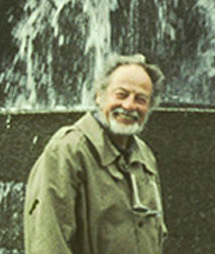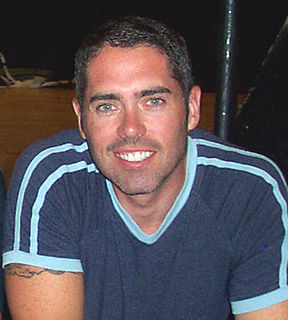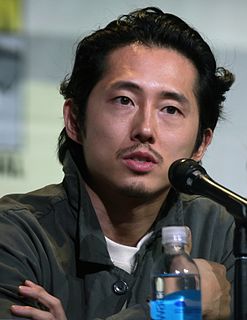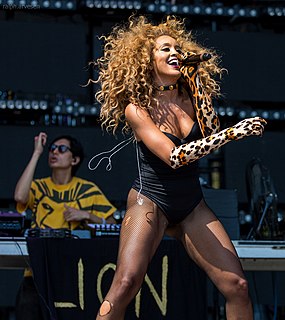A Quote by Lawrence Halprin
Let me just say something that I forgot, I also hoped and this was very true in the beginning - that this would also be a place that people would be able to walk in to the fountain and use it in a nice way of reading and examining the quotations on the blocks.
Related Quotes
Ultimately, we as a band just write what we write. Some of it's very serious, and even in the serious songs, there's sometimes an angle of levity. I think that's just how we communicate naturally and to shy away from that would be, first of all, boring for me, but also it wouldn't ring true to who I am or the way I relate to people or the way we relate to people as a band or the way we relate to the audience. Humor is a big part of it, but we also take our craft very seriously.
The ending of my experience with cocaine came in a periodic way. I would get high less frequently, I would use smaller amounts, and I would do coke for less periods of time. And that process just kept increasing and increasing until I wasn't using it at all. I didn't go on a program anywhere. I didn't join an organization or detox anywhere. I just slowly tapered off until it was gone. That was also true of my heavy pot use. I just tapered off until there was almost no use at all. And the same thing was true of drinking tons of beer.
There was something really wonderful about being able to feel confident about doing my first exhibition in China, that people would have no trouble recognising the images and understanding my work. I also have a lot of freedom in the way I use colour, and I think that kind of freedom in colour is also understandable in every culture.
The expression I use: Pain + Reality = Progress. Whenever I would have a painful mistake, I started to view that as puzzles that would give me gems if I could solve the puzzle. So, it made me thoughtful - what should I do differently next time? That was the puzzle. And the gem was some principle for handling the same thing when it came along again, and then I would write it down. And by writing it down and referring to it, and also being able to show it to other people so that we could agree that that was a good way of handling that thing - that was very, very powerful.
If I'm a director and I read a script and I say yeah I really want to do this, I would never walk away because the deal wasn't very good - that I wasn't getting paid very much or that the chances that I would see anything on the back end were remote because of the financial waterfall and the way it's structured. I would never use that as a reason not to do something.
On "[Total] Recall" also [sets were extraordinary], but this was next-level. They built two or three blocks of midtown Manhattan in 1926 and it was inhabited with 400 extras and 24 Model Ts and a train system and all that kind of nonsense. It was madness. You would walk into shops and they would have the goods from that period, it was just huge.
I worked very hard to try and figure out what I thought and I believed that we were going to succeed and that revolutions would happen globally and we would be a part of that and we would have then not capitalism. We would have values based on human lives, not profit. We would actually transform the kinds of ways people built love and built community. It was a very shocking thing to me, out of the end of the 70s and the beginning of the 80s, to realize that that dream - while I still believed in it - was not going to happen in the way that I had hoped.
There was a time when I could walk down the street, Hollywood Boulevard or Beverly Drive, and somebody would come up to you and they would say, "Excuse me," and you'd barely hear them, and you'd turn around and you'd say, "Yeah, how you doing?" and they'd say, "I'm really sorry to bother you, but my aunt is a big fan of yours, and would you mind terribly if you'd just sign this paper," or whatever it is, and you're happy to do that, and the people are pretty nice about it.
I would go with my husband to the tailors where he gets his shirts made, and I would watch the bespoke process. I would ask them, "Would you be able to make that for me?" And they would always say, "Well, yes, but no." They were very French about it. I decided I would just do it for myself. And I started doing that. Then other people would notice, and want it. So I started doing things for friends, little pieces, and my own line grew that way.
Jean-Luc didn't like me to say any bad words in real life, and I would always do it on purpose, just for fun. And he would go crazy! Then he had Brigitte Bardot do just that in 'Contempt.' And in that film she also has this line - 'I want red velvet curtains, or nothing at all in the apartment' - which was something I would always say.
To be honest, at that point, just being so fresh to L.A., I was in the mind-set of just getting work, at all costs. But, if you take a step back from it, it's just such a blessing to be able to play somebody like Glenn. Me being Asian American, it's nice to have something to play that's not so very stereotypical. It's also nice to have somebody that I identify with.
Remus Lupin was supposed to be on the H.I.V. metaphor. It was someone who had been infected young, who suffered stigma, who had a fear of infecting others, who was terrified he would pass on his condition to his son. And it was a way of examining prejudice, unwarranted prejudice towards a group of people. And also, examining why people might become embittered when they're treated that unfairly.








































